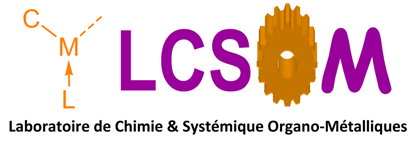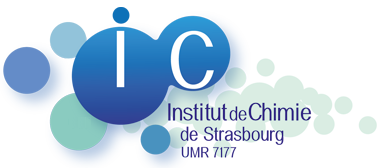La Systémique est l’étude des Systèmes Complexes dotés de propriétés « émergentes », c’est à dire qui ne se réduisent pas à la somme des propriétés des éléments constituant le système mais qui en émanent par des processus collaboratifs et convergents (la Vie et la reproduction sont des propriétés émergentes). En Chimie ce vaste domaine recouvre l’étude des systèmes hors de l’équilibre, la catalyse homogène dynamique, la catalyse homogène sélective, la catalyse tandem, l’influence milieu vs. perturbations physiques, la théorie de la liaison chimique et des interactions molécule-environnement (solvatation), et le vaste domaine de la chimie supramoléculaire. Le LCSOM s’inscrit dans ce champ disciplinaire en développant une approche « systémique » de la chimie organométallique et des métaux de transition.
Vous trouverez sur ce site des informations concernant nos activités de recherche ainsi qu’un descriptif de notre infrastructure.
Si vous êtes étudiant (masters de Chimie, ENS, Ecoles d’ingénieur, BTS, licences de Chimie, etc...) et que vous souhaitez effectuer un stage dans notre groupe, vous pouvez nous contacter de plusieurs manières :
![]() par courriel : cliquez ici
par courriel : cliquez ici
![]() par téléphone : 03 68 85 15 23 (Jean-Pierre Djukic)
par téléphone : 03 68 85 15 23 (Jean-Pierre Djukic)
![]() en vous rendant dans nos locaux : Université de Strasbourg, Campus Esplanade, Institut Le Bel, aile Nord, 9e étage, bureau 942b.
en vous rendant dans nos locaux : Université de Strasbourg, Campus Esplanade, Institut Le Bel, aile Nord, 9e étage, bureau 942b.
Le LCSOM est une équipe constituante de l’Institut de Chimie de Strasbourg, UMR 7177 du CNRS et de l’Université de Strasbourg.
Adresse Postale :
LCSOM, Institut de Chimie de Strasbourg (UMR 7177)
Université de Strasbourg
4, rue Blaise Pascal
F-67070 Strasbourg Cedex
France

- LCSOM2017, son groupe étudiant, doctorant et post-doctorant.
- LCSOM - 2017
 Laboratoire de Chimie et Systémique Organo-Métalliques(Directeur Jean-Pierre Djukic)
de l'Institut de Chimie de Strasbourg (UMR 7177)
Laboratoire de Chimie et Systémique Organo-Métalliques(Directeur Jean-Pierre Djukic)
de l'Institut de Chimie de Strasbourg (UMR 7177)


